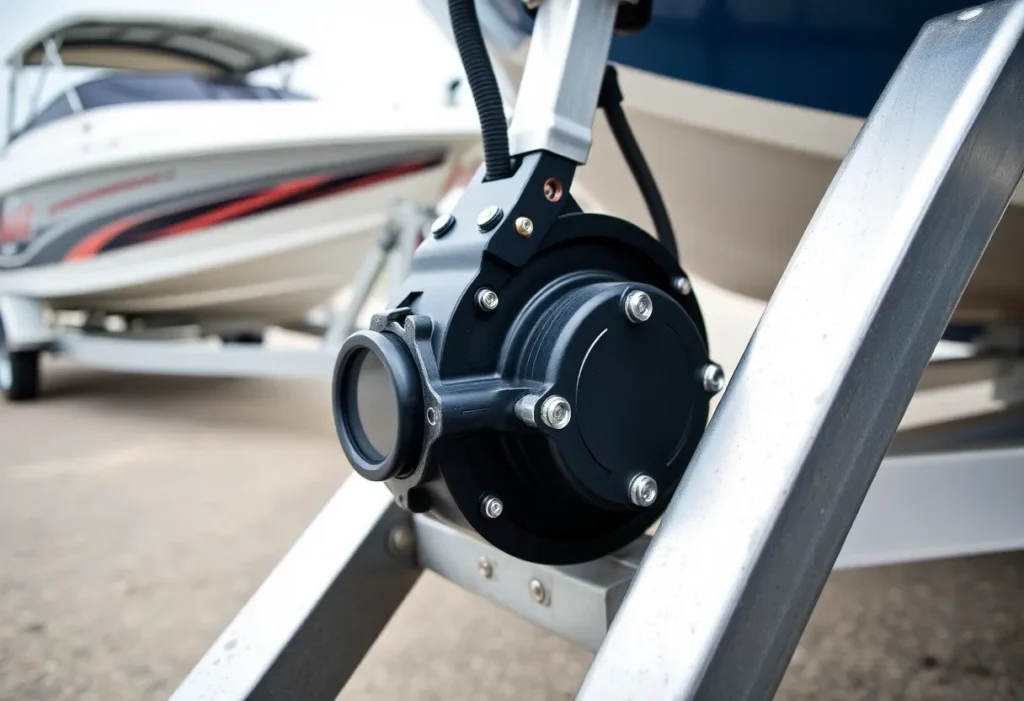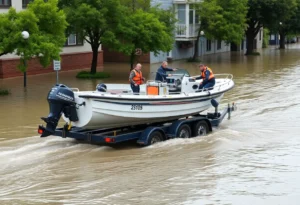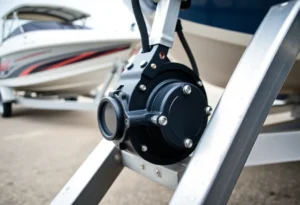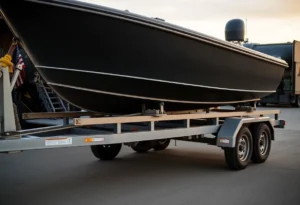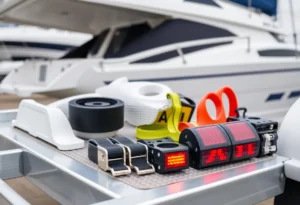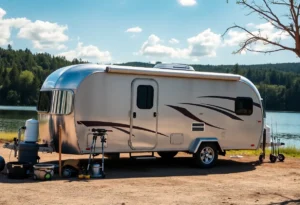The Importance of Brake Systems in Boat Trailers
Introduction
When it comes to towing a boat, ensuring the safety and functionality of the trailer is paramount. Among the various components that enhance safe transportation, brake systems stand out. The importance of brake systems in boat trailers cannot be overstated. These systems are crucial not only for the efficiency of towing but also for ensuring the safety of the boat, the vehicle, and other road users.
Understanding Trailer Brake Systems
Trailer brake systems can significantly vary in design and operation. The two most common types are surge brakes and electric brakes.
Surge Brakes
Surge brakes work on the principle of inertia. When the towing vehicle slows down, the trailer pushes forward against a master cylinder, activating the brakes. This type of system is self-adjusting and automatically applies pressure when needed.
Electric Brakes
Electric brakes rely on the vehicle’s electrical system for operation. The driver can control the braking force using a brake controller installed in the tow vehicle. This kind of system allows for more nuanced braking adjustments and is generally considered more effective for larger or heavier trailers.
Key Benefits of Brake Systems in Boat Trailers
Increased Safety
Safety is arguably the most critical reason for having a reliable braking system on your boat trailer. When towing, the combined weight of the boat and trailer can be substantial. A well-maintained brake system helps reduce stopping distances and prevents potential accidents. Knowing that your boat trailer can stop effectively makes towing less stressful.
Legal Compliance
In many jurisdictions, laws mandate specific braking systems based on the weight and type of the trailer. Understanding these regulations is essential for compliance. Failing to have the necessary brake systems can lead to legal issues, fines, and even penalties for unsafe towing practices.
Understanding Trailer Weight and Braking Requirements
One of the most significant factors influencing the importance of brake systems in boat trailers is trailer weight. Weight considerations include:
Gross Vehicle Weight Rating (GVWR)
The GVWR is the maximum weight a trailer can safely carry, including the boat’s weight. For trailers exceeding a certain weight, brake systems become not just a recommendation but a requirement.
Tongue Weight
Tongue weight is the downward force exerted onto the hitch by the trailer. It plays a crucial role in the stability and handling of the towing vehicle. An insufficient tongue weight can lead to swaying, while excessive weight can overload the braking system.
Types of Brake Systems and Their Importance
Different boats and trailers may require distinct braking systems. Selecting the proper system tailored to your specific needs is fundamental for safe towing.
Disk vs. Drum Brakes
Disc brakes offer superior stopping power and performance, especially under heavy loads. They dissipate heat more effectively, making them better suited for larger boats. Drum brakes, on the other hand, are generally easier to maintain and cost-effective, but they may not provide the same level of performance in demanding conditions.
Hydraulic vs. Electric Systems
A hydraulic brake system often provides stronger stopping power. However, electric brake systems offer more control and adaptability, especially in varying conditions. Understanding the differences helps owners make an informed choice that aligns with their towing requirements.
Regular Maintenance for Optimal Performance
Even the most advanced brake systems require regular maintenance. Wear and tear are inevitable with use, and neglecting this can lead to catastrophic failures.
Inspection of Components
Regularly inspect brake pads, rotors, and lines. Look for signs of wear, corrosion, or damage. Timely replacement can prevent larger issues in the future, ensuring the importance of brake systems in boat trailers is well recognized.
Testing the System
Before embarking on any journey, conduct a thorough test of the braking system. Check the response time and braking distance. Any irregularities may be a sign of underlying problems that need immediate attention.
Recognizing Common Issues
Understanding common brake issues can safeguard against both accidents and costly repairs.
Loss of Brake Fluid
Brake fluid can leak, leading to reduced braking efficiency. It’s essential to check the fluid levels regularly and top them off as necessary.
Overheating Brakes
Heavy loads and prolonged braking can cause brakes to overheat, leading to brake fade. Adequate cooling mechanisms and not overloading the trailer are crucial to prevent this issue.
Brake Wear Indicators
Many braking systems come equipped with wear indicators. These should never be ignored, as they signal the need for maintenance or replacement.
The Role of Technology in Brake Systems
Advancements in technology are impacting the way brake systems function in boat trailers.
Smart Brake Controllers
Modern electric brake systems often employ smart controllers that adapt braking force based on real-time conditions—improving safety and responsiveness.
Tire Pressure and Brake Assistance
Keeping a close eye on tire pressure can enhance brake effectiveness. Many new systems integrate tire pressure monitors to alert drivers to pressure imbalances that could impact overall towing safety.
Conclusion
The importance of brake systems in boat trailers cannot be overstated. From safety to legal compliance, the benefits of a well-functioning braking system are clear. With various types of systems available, ensuring you have the right one for your trailer is crucial. Regular maintenance and vigilance in monitoring performance will guarantee the safety of your travels. Remember, investing in your brake system is investing in your safety and peace of mind while out on the open water or roads.

